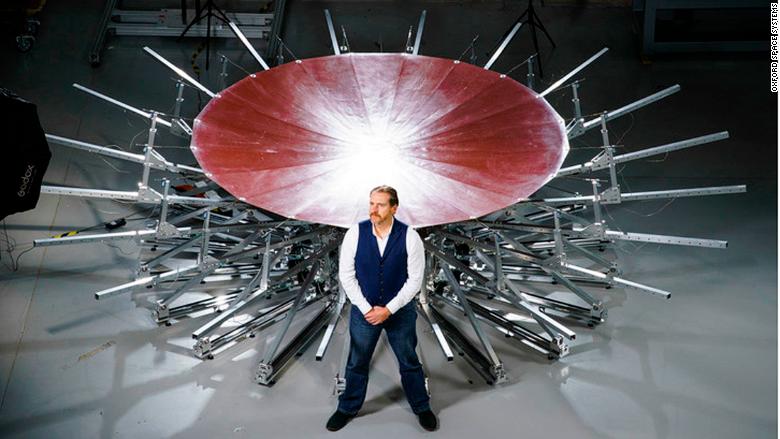
The delicate art of origami has been practiced for over 1,000 years, but could this ancient discipline play a part in unlocking the secrets of space?
A British startup has come up with a novel way to reduce the amount of space needed to send structures into orbit.
Oxford Space Systems (OSS) was founded in 2013 by Mike Lawton, a self-confessed "space geek who grew up on a diet of Star Wars and Star Trek."
OSS designs and manufactures deployable antennas and structures for satellites. It has its own proprietary material, which it says is lighter and takes up less stowage than materials traditionally used in space technology.
"What we've done is figured out a way to make carbon fiber roll, and also to store energy, meaning it acts like a spring and unrolls," Lawton explained.
The next step? Figuring out how to fit its structures into as small a space as possible to reduce launch costs.
Ancient inspiration
OSS turned to the ancient art of origami for inspiration.
The company works closely with Oxford University professor Zhong You, an engineer with an expertise in origami, to improve its designs and come up with ways to fold antennas and other component parts for satellites.
"Origami is very maths-based. Space likes predictability and analysis of how things behave. Origami gives us an elegant way of folding structures," Lawton said. "We start folding on cardboard or paper, and we go from there."
Antennas allow spacecraft to communicate with the earth. Generally, the bigger the antenna, the more efficient the communication.
However, larger antennas are heavier and more expensive to launch into space, with costs running to thousands of dollars per kilogram. "So reducing the weight by even half a kilo is worth getting out of bed for," Lawton said.
OSS antennas require more research and development. But Lawton said there is already significant commercial interest. He hopes that the unfurling antennas will be in space by early 2020.
The company's first product, an extending boom called the AstroTube Boom, launched in 2016.
Booms are used on satellites to deploy things like scientific instruments. "They push instruments away from the craft into 'clean space' to give better measurements free of interference from the craft," Lawton said.
'You've got to be bold'
While OSS is focused on developing space technology, the venture capital-backed business has been approached by companies from other industries that are interested in the material it has developed.
"Anywhere that you are dealing with extreme environments, extreme temperatures, the material we've developed will have applications. We are considering allowing other companies to manufacture it under license," Lawton said.
Lawton is keen to preserve an innovative culture as his company scales.
"Big companies, around for decades, don't really take risks. What they call innovation, I call incremental improvement. It's about cost-reduction and process optimization," he said.
"You've got to be bold. I don't want to err on the side of caution. The only rule I have is don't make the same mistake twice, because then we are not learning from our mistakes."

